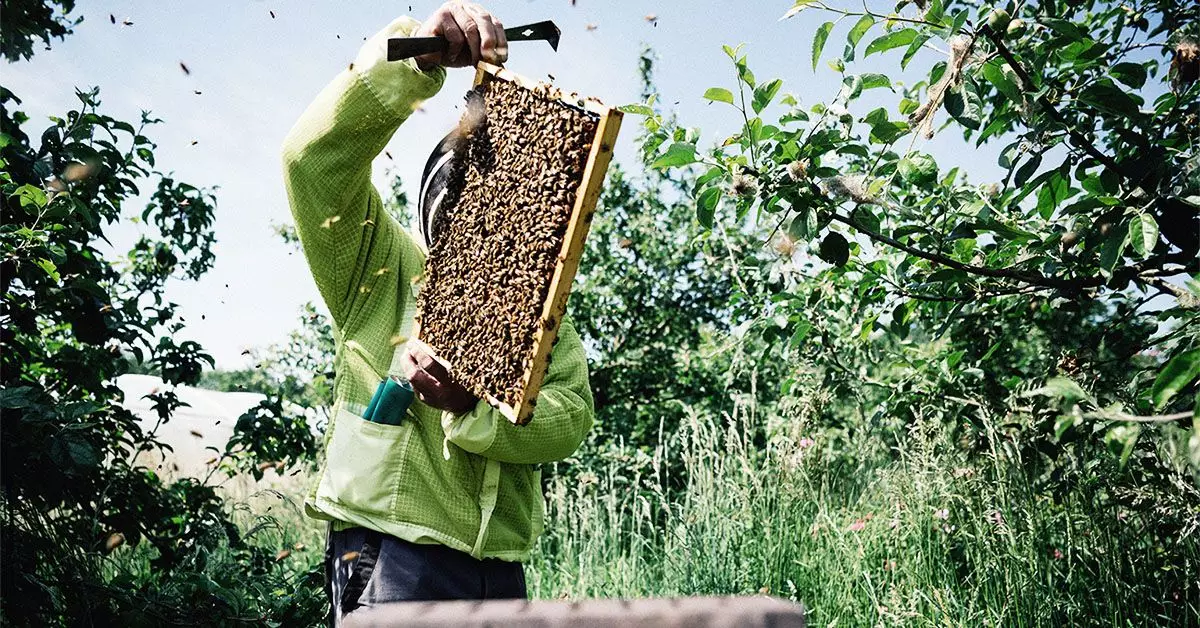The idea of using local honey to reduce hay fever symptoms is a popular one, with many believing that the small traces of pollen in the honey can help build tolerance to pollen and alleviate symptoms. However, a 2020 review found no scientific evidence to support this claim. Past studies have shown mixed results, with some finding benefits while others revealing limited improvement. Little research has specifically focused on local honey, making it challenging to draw definitive conclusions about its effectiveness in treating hay fever.
The concept of using local honey for hay fever is based on the principles of immunotherapy, which involves exposing the body to allergens to build tolerance and reduce allergic reactions. However, most individuals with hay fever are allergic to grass and weed pollens, while bees primarily pollinate flowers. This raises questions about whether honey containing flower pollen can effectively desensitize the immune system to airborne grass and weed pollen, which are the primary triggers for hay fever.
While some studies have shown that specific types of honey, such as birch pollen honey and Tualang honey, may have benefits for individuals with certain pollen allergies, the results are not universally applicable to all types of local honey. Additionally, there is limited evidence to suggest that honey functions as an antihistamine, with some studies indicating that honey may actually suppress the immune system in certain cases.
Proponents of using raw, unprocessed honey for hay fever treatment argue that it contains higher amounts of pollen compared to processed honey. However, consuming raw honey carries risks, particularly for individuals with severe pollen allergies who may experience adverse reactions. Additionally, both raw and processed honey can contain harmful bacteria, such as Clostridium botulinum spores, which can lead to botulism. Therefore, caution must be exercised when consuming raw honey, especially for infants under 1 year old.
Given the lack of robust scientific evidence supporting the use of local honey for hay fever, individuals considering this approach should consult with a healthcare professional before making any changes to their treatment regimen. It is essential to weigh the potential benefits against the risks, especially for those with severe allergies. In cases of significant allergic reactions, such as hives or anaphylaxis, immediate medical attention is necessary.
While local honey may not be a reliable solution for hay fever, there are other complementary treatments that have shown some promise in managing allergy symptoms. These include infrared light therapy, which was found to reduce symptoms in a small study, although further research with larger sample sizes is needed to validate these findings. It is crucial for individuals to discuss any complementary therapies with their healthcare provider to ensure they are safe and effective.
The idea of using local honey to alleviate hay fever symptoms may be appealing, but the scientific evidence supporting its effectiveness is lacking. Limited studies have shown benefits for specific types of honey in treating certain pollen allergies, but this does not guarantee the same results for all local honey varieties. More research is needed to determine if honey can truly benefit individuals with hay fever. In the meantime, it is essential for individuals to maintain an open dialogue with their healthcare provider and exercise caution when considering alternative treatments for allergies. While honey can be a part of a balanced diet, it is not a substitute for evidence-based medical interventions for hay fever.

